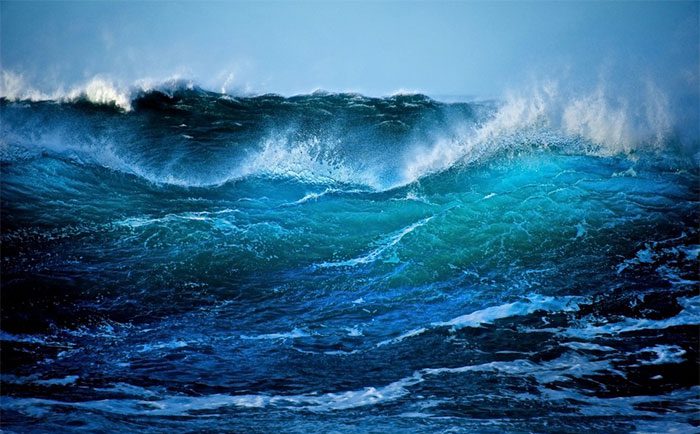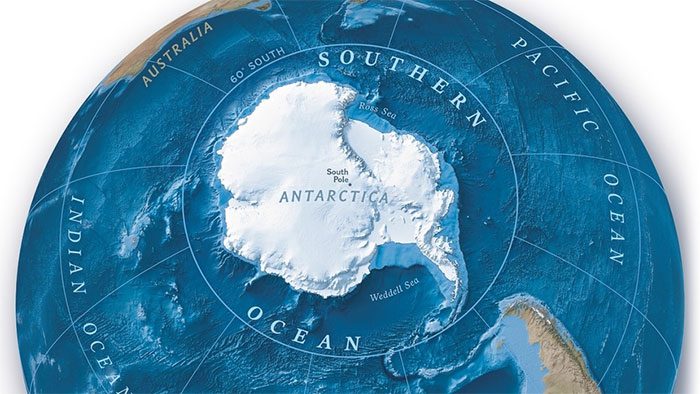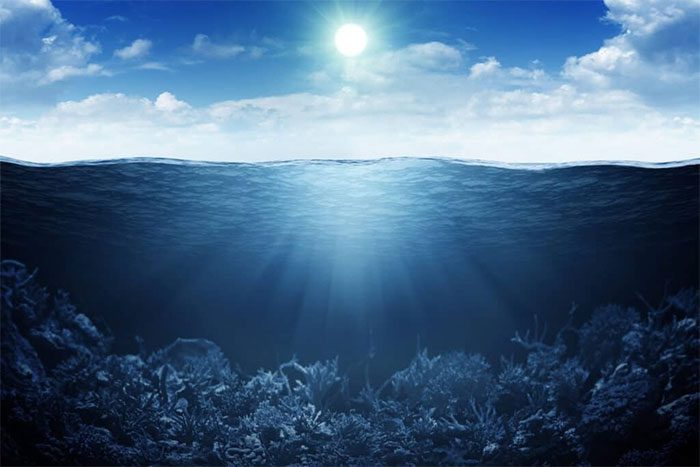Does the Earth have 1, 4, or 5 oceans? This question may seem straightforward, yet the scientific community has yet to reach a consensus on the answer.
Water covers more than 70% of the Earth’s surface, and 96.5% of this water comes from the oceans. However, experts cannot agree on the total number of oceans on Earth.

According to international geographic associations recognized by the United Nations, Earth comprises 5 oceans: the Pacific Ocean, the Atlantic Ocean, the Indian Ocean, the Southern Ocean, and the Arctic Ocean. (Image: Wallhere).
Only One Ocean
Theoretically, our blue planet has only one ocean since all oceans are part of an interconnected water system, according to the National Oceanic and Atmospheric Administration (NOAA).
This water system is then divided into different regions, consisting of 4 oceans: the Arctic Ocean, the Atlantic Ocean, the Indian Ocean, and the Pacific Ocean. These 4 oceans are defined by the continents adjacent to them.
As of 2021, the National Geographic Society officially recognized the fifth ocean as the Southern Ocean, which surrounds Antarctica. However, the answer to whether Earth has 1, 4, or 5 oceans may still vary depending on individual perspectives.

The Antarctic current defines the boundary of the Southern Ocean. (Image: National Geographic).
The term “ocean” is commonly used to refer to large bodies of water on Earth. However, there is still no universally accepted official definition for this concept.
The International Hydrographic Organization (IHO) did not recognize the existence of the Southern Ocean, which is defined by the Antarctic Circumpolar Current (ACC) flowing from west to east. It wasn’t until June 8, 2021 – World Oceans Day – that the Southern Ocean was officially recognized as the fifth ocean on the map.
Scientists believe that the Antarctic current was formed about 34 million years ago when the continent of Antarctica separated from South America. This current encircles the Antarctic continent and demarcates the Southern Ocean as the body of water located south of the 60°S latitude, except for the Drake Passage and Scotia Sea. The ACC is the dominant current of the Southern Ocean and is currently the largest ocean current.
Debate Over the Fifth Ocean
The waters in the Southern Ocean are colder and less salty compared to the seas in the southern Atlantic, Pacific, and Indian Oceans. The deep currents flowing around Antarctica play a crucial role in marine life in the Southern Ocean.

The Southern Ocean is referred to as the largest ‘carbon sink’ on Earth. (Image: iStock).
These currents transport water from the Atlantic, Pacific, and Indian Oceans inward, regulating global temperatures. It can be said that the Antarctic current acts as one of the ocean’s lungs, providing nutrients and new oxygen to 40% of the world’s deep seas.
The ocean winds in this area are a factor in forming the phenomenon of upwelling, where cold water moves from the ocean floor to the surface. Once it rises to the surface, seawater absorbs carbon and then sinks back down. This process has made the Southern Ocean the largest “carbon sink” on Earth, according to a 2021 NASA study.
“The Antarctic Circumpolar Current is the link connecting the Southern Ocean with other oceans,” said hydrologist Frank Nitsche from Columbia University. The proposal to designate the waters around Antarctica as a separate ocean has been around for nearly 100 years and has been widely accepted by scientists.
Thus, Frank Nitsche stated that he was not overly concerned when the National Geographic Society decided to officially recognize the Southern Ocean as the fifth ocean of the Earth in 2021. “I didn’t even notice that it had been recognized,” he told Live Science.
The question arises: if scientists have known about this ocean, why was there a need to name and recognize it? Hydrologist Renellys Perez from NOAA explained that this would help the public better understand the issues facing the marine area where they live.
“We want to think of all waters as one single ocean, but studying them individually and addressing local issues is much more beneficial.
Typically, people do not care about the problems of the vast oceans of the world. Instead, they tend to be more concerned about issues closer to their own region,” the researcher told Live Science.


















































